
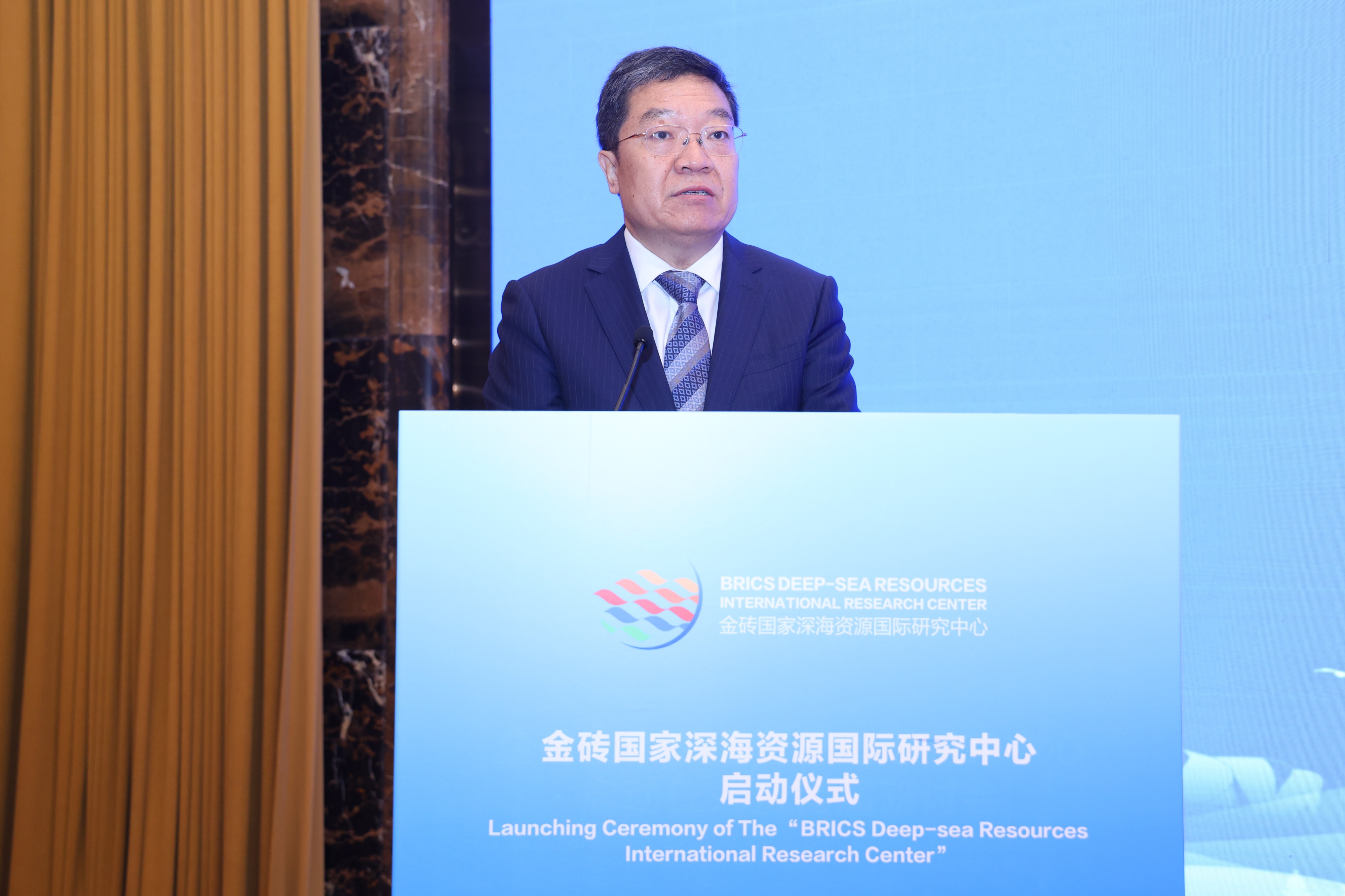
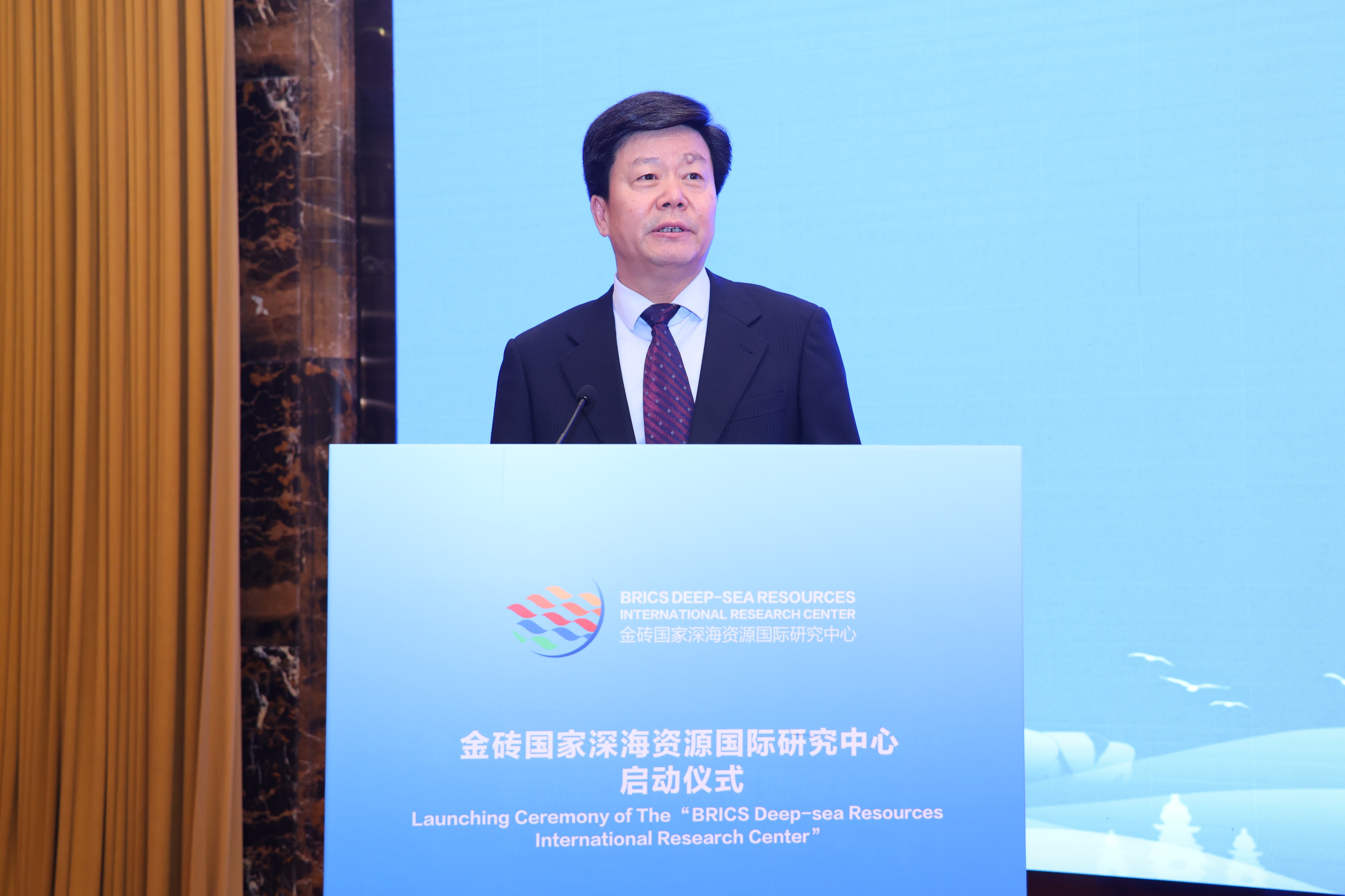
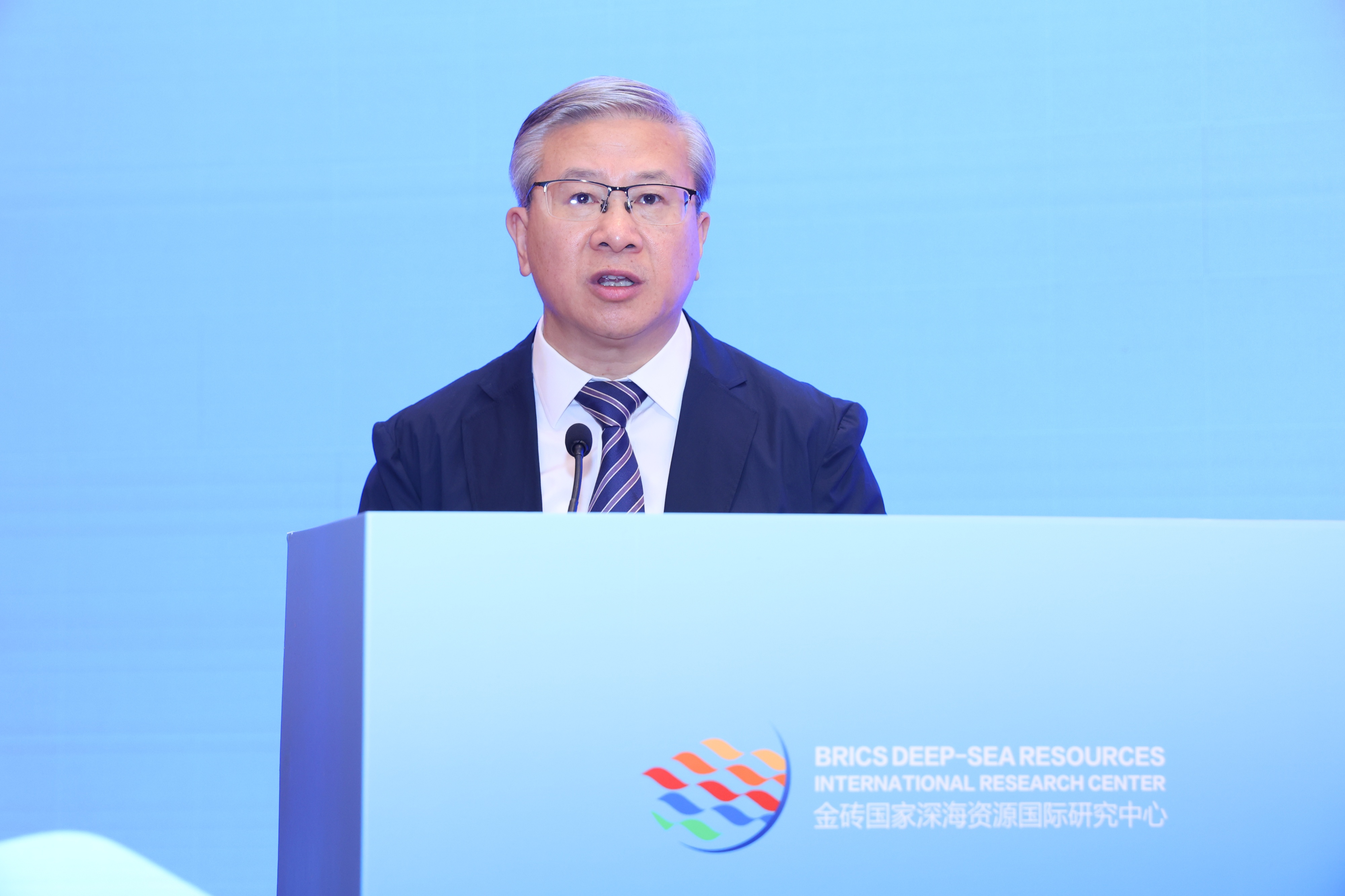
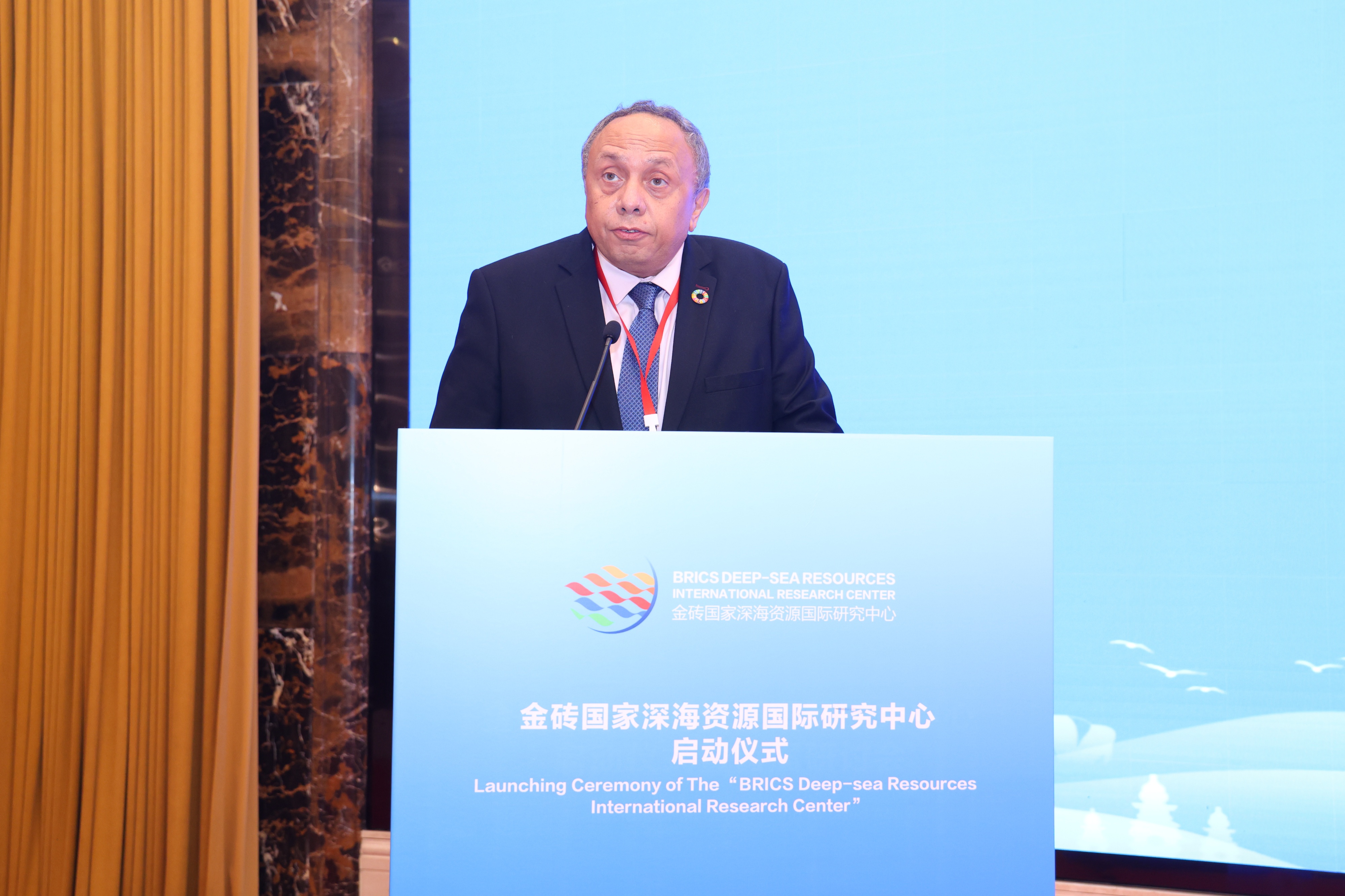
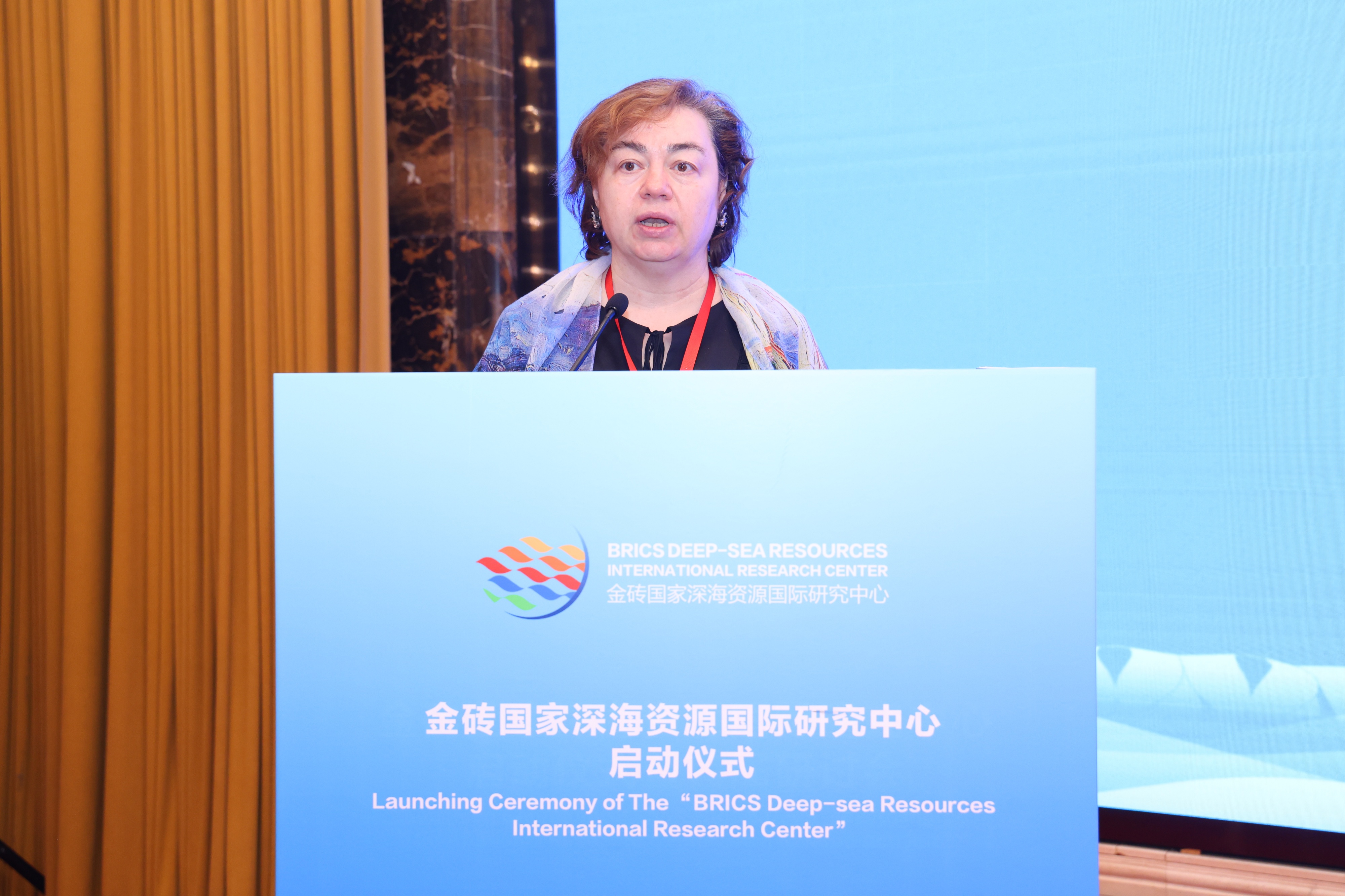
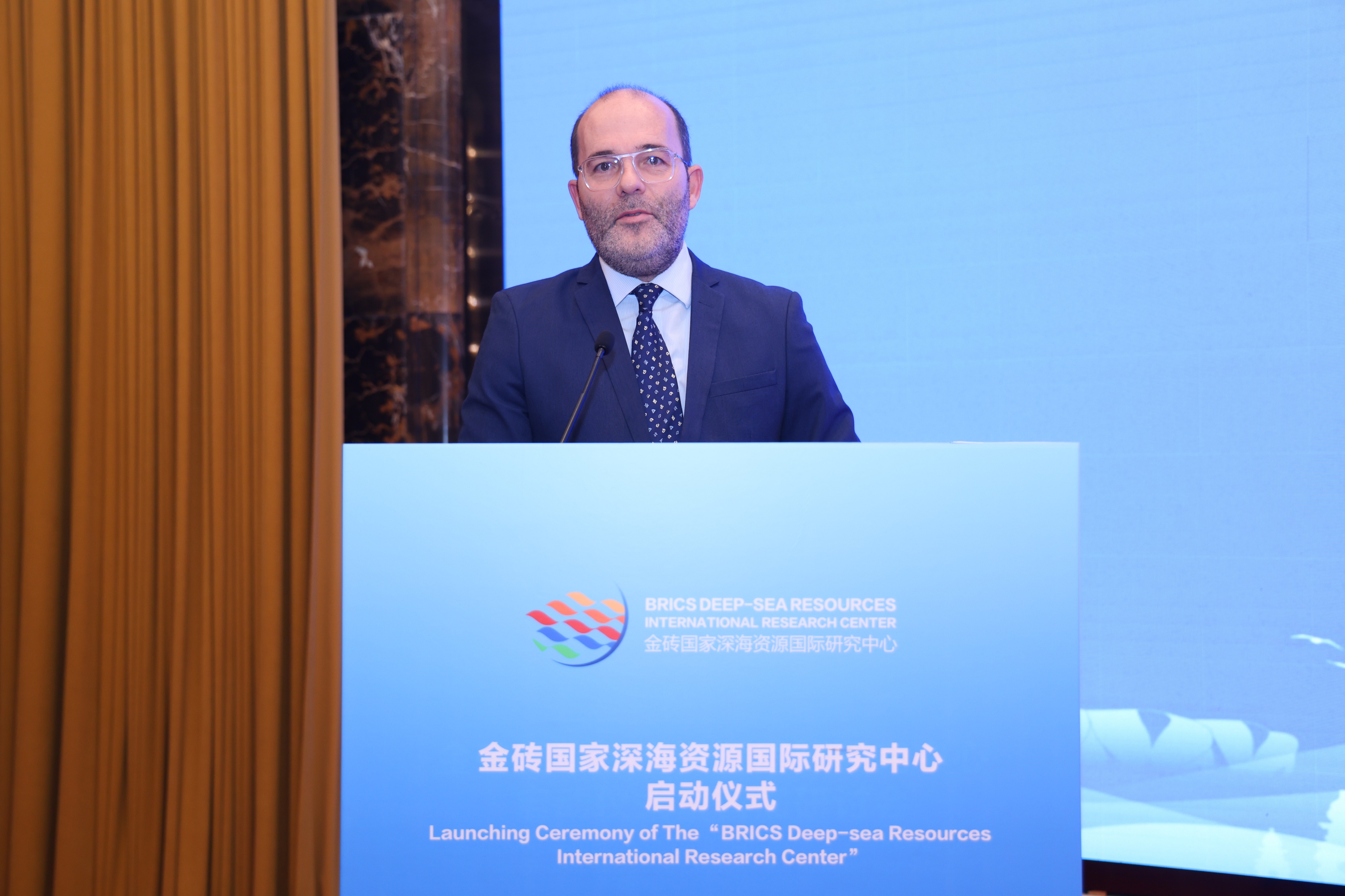
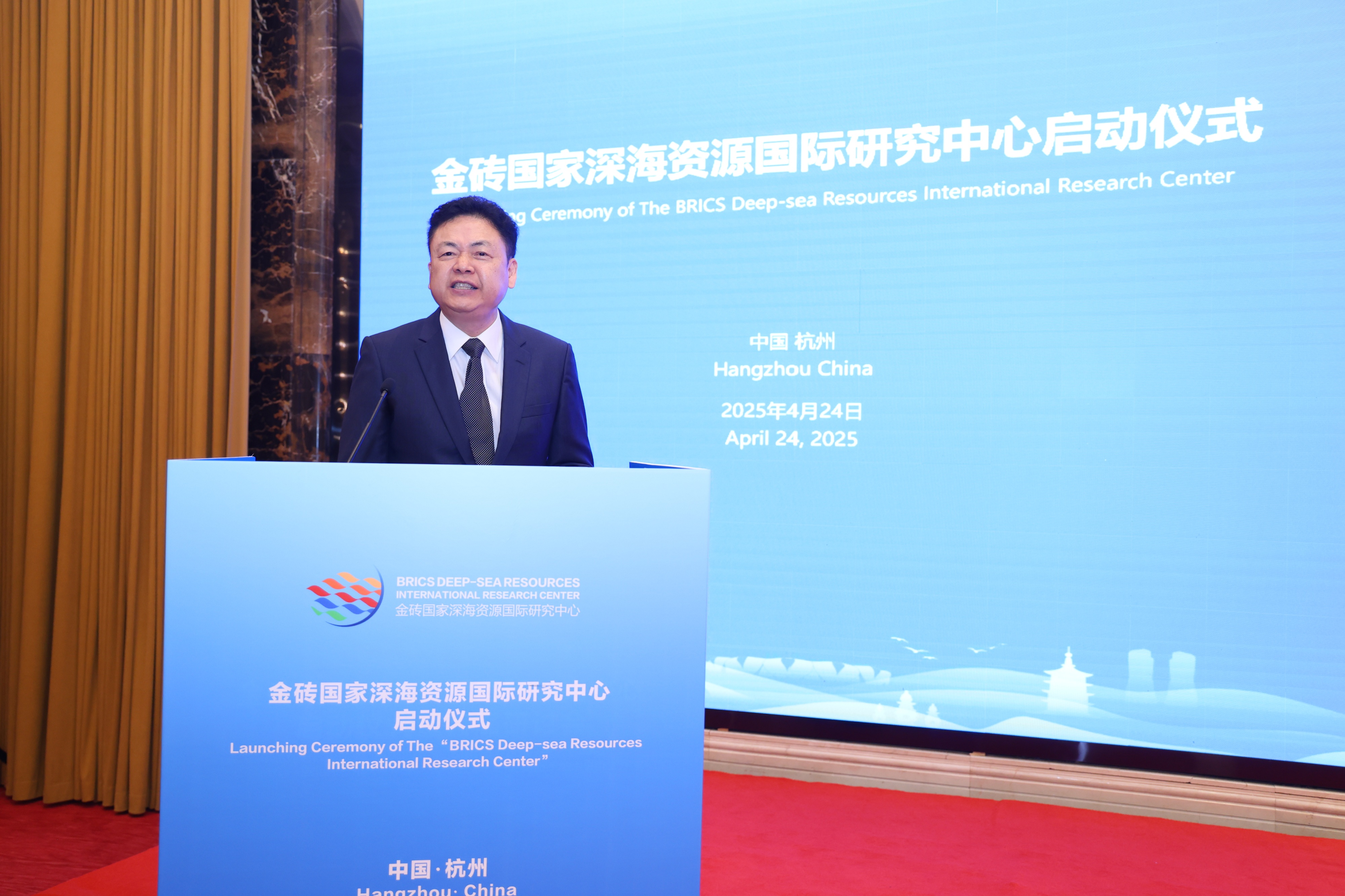
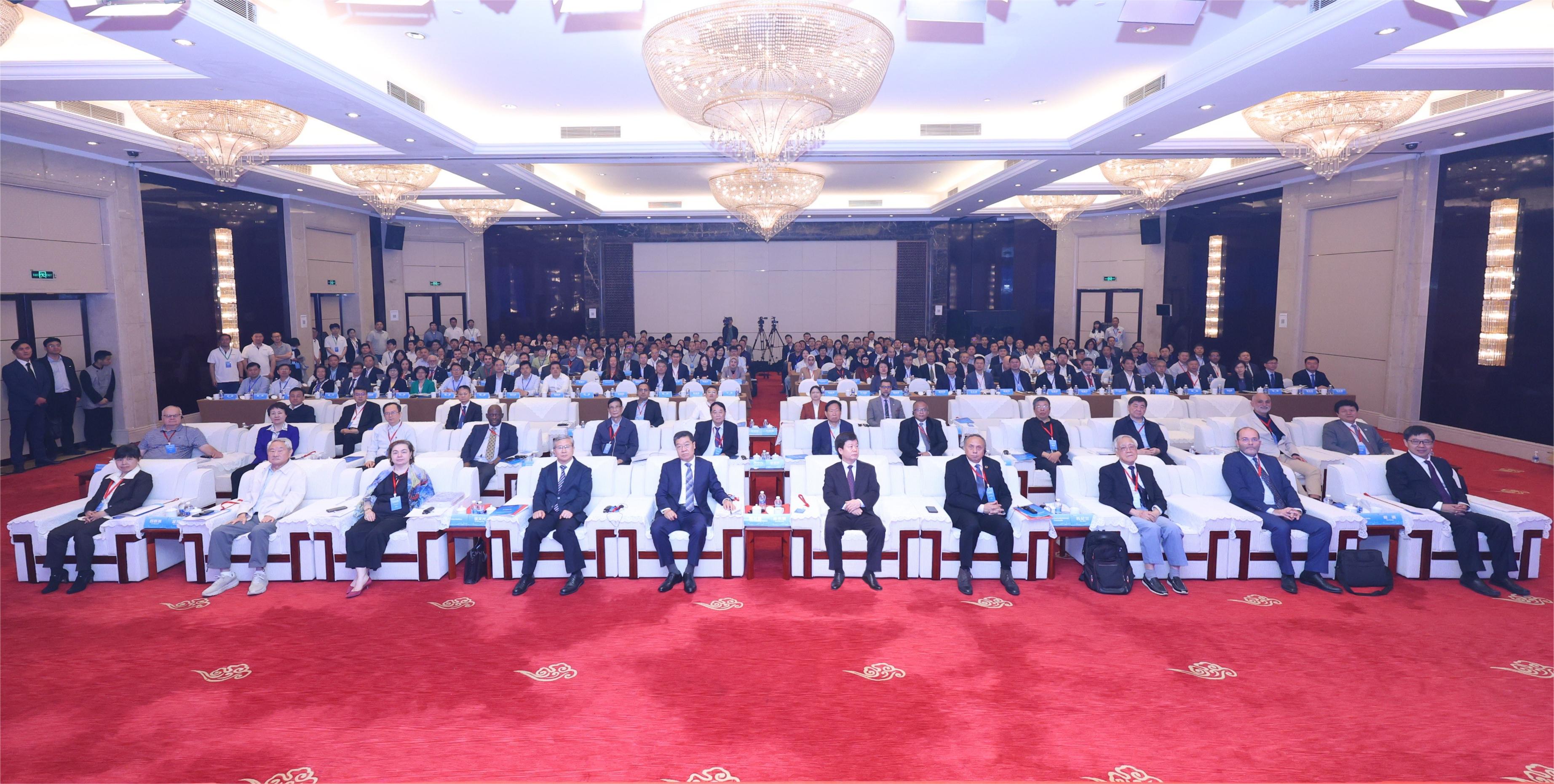
On April 24, the launching ceremony of the BRICS Deep-Sea Resources International Research Center (the “BRICS Deep-Sea Center”) was held in Hangzhou, Zhejiang Province. Chen Jiachang, Vice Minister of the Ministry of Science and Technology, Sun Shuxian, Vice Minister of the Ministry of Natural Resources, Xu Wenguang, Executive Vice Governor of the Zhejiang Provincial People’s Government, Amr Zakaria Hamouda, Vice Chairman of the Intergovernmental Oceanographic Commission of UNESCO, Irina Kuklina from the International Center for Innovation in Science, Technology and Education of the Ministry of Science and Higher Education of the Russian Federation, Jose Dallo Moros, Director of the Office of the International Seabed Authority, and others attended the launching ceremony and delivered speeches.
In October 2024, Chinese President Xi Jinping announced at the 16th BRICS Leaders’ Meeting that we should build an ‘Innovative BRICS’ and be the forerunners of high-quality development, and declared that China would establish the BRICS Deep-Sea Center, and welcome active participation from all parties to promote upgraded cooperation. This initiative highly fits with the overall strategy of the BRICS countries to promote sustainable development and address global inequality through scientific and technological innovation.
Chen Jiachang, Vice Minister of the Ministry of Science and Technology, pointed out in his speech that marine and polar sciences are important areas for BRICS cooperation in scientific and technological innovation. The establishment of the BRICS Deep-Sea Center is a practical measure by China to deepen BRICS cooperation in this field. He hoped that the center would become a bridge connecting governments, industries, academia and research institutions in the deep-sea sector of the BRICS countries, bring together strengths to advance multi-level exchanges and cooperation in scientific research, joint voyages, data sharing and platform construction, enhance the overall deep-sea research capabilities of the BRICS countries and strengthen their voice in global ocean governance.
Sun Shuxian, Vice Minister of the Ministry of Natural Resources, stated that China has always adhered to the concept of “equal emphasis on development and protection”, focused on the integration of deep-sea surveys and protection, strengthened the research and development of deep-sea technologies and equipment, prioritized legislation and actively participated in international deep-sea governance. He proposed that BRICS countries continue to deepen exchanges and cooperation, jointly build an “innovation community” in deep-sea science and technology, protect the “life community” of deep-sea ecosystems, and expand the “development community” of marine cooperation. These efforts will enable developing countries to better participate in international deep-sea affairs and foster a new pattern of mutually beneficial and win-win deep-sea development.
Xu Wenguang, Executive Vice Governor of the Zhejiang Provincial People’s Government, pointed out that as a national marine economic development demonstration zone, Zhejiang Province adheres to the deep integration of scientific and technological innovation with industrial innovation and implements actions for opening up the marine sector. Zhejiang will seize the opportunity of establishing the BRICS Deep-Sea Center and, based on its strategic positioning as a “national key marine science and technology innovation source”, focus on platform cooperation and co-construction, key technology breakthroughs and the transformation of scientific and technological achievements, to create a highland for collaborative innovation and promote breakthroughs in science and technology.
The establishment of the BRICS Deep-Sea Center marks a crucial step forward in deep-sea science and technology cooperation and innovation among BRICS countries in addressing common challenges such as resource scarcity, ecological protection and equitable development. The center will focus on global issues of common concern, centering on key areas such as deep-sea minerals, oil and gas, cold springs and environmental governance. It will pool the superior scientific research capabilities of BRICS countries to provide strategic consultation and solutions for major issues pertaining to sustainable development. Through cooperative research, joint voyages, platform co-construction, technology transfer and talent cultivation, the center aims to build an open and shared international cooperation platform and enhance the influence of BRICS countries in global ocean governance.
The BRICS Deep-Sea Center is constructed under the joint guidance of departments including the Ministry of Science and Technology, the Ministry of Natural Resources, and the National Natural Science Foundation of China. The Administrative Office is the Administrative Center for China’s Agenda 21, and its construction and operation are under the responsibility of the Second Institute of Oceanography (“SIO”). Researcher Tao Chunhui from the SIO, representing the BRICS Deep-Sea Center, introduced the center’s vision. A broad consensus was reached at the meeting, which further consolidated the foundation for cooperation among BRICS countries in the fields of deep-sea science and technology and sustainable development, injecting new impetus into the promotion of building a more open, inclusive, mutually beneficial and win-win deep-sea development pattern.

